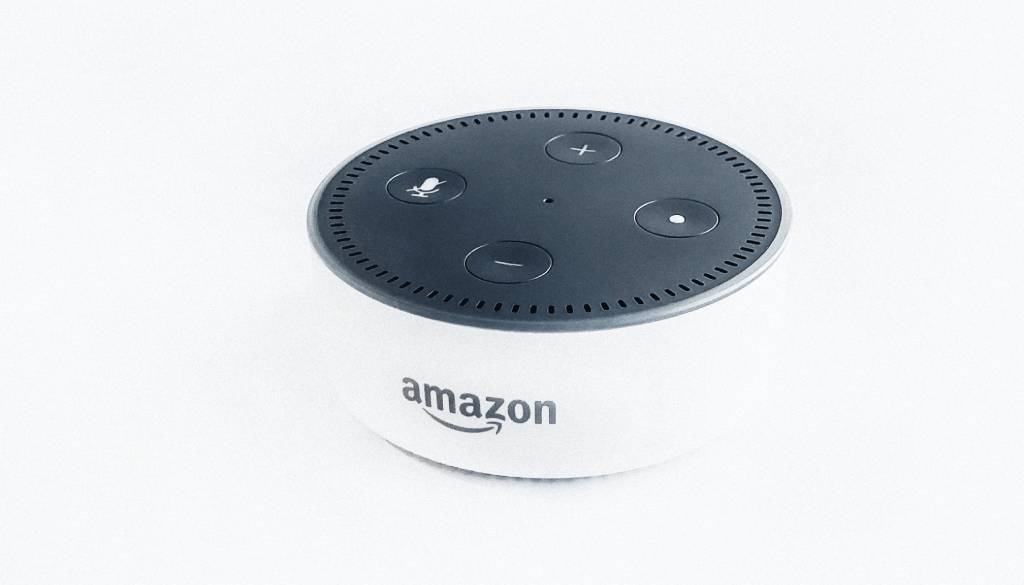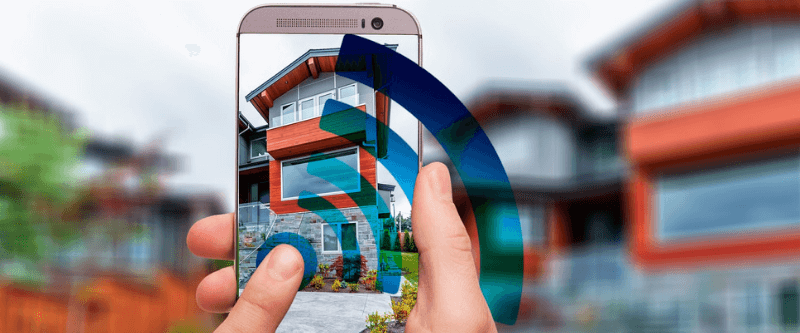The Internet of Things (IoT) is a simple concept which means connecting all digital devices to the internet to make them “smart”.
The IoT has now come to practical applications in all industries viz. agriculture, logistics, healthcare, sports, manufacturing, travel, and tourism, among others. But the Internet of Things in the hospitality industry is something much more than just a hands-on experience.
IoT in hospitality industry is best defined as: A network of digital devices and machines interrelated through the internet for enhanced guest experience and optimized expenses.
IoT can prove (in fact, is already proving) to be beneficial to the hospitality industry in tons of possibilities.
Here are a few IoT use cases in hospitality industry to start with:
- Le Meridian Goa, Calangute has built an IoT enabled hotel that reduces energy consumption and delivers an exceptional guest experience. They have achieved this with Schneider Electric’s IoT hotel solution (Ecostruxure for hotels).
- Marriott uses IoT to create a room of the future. Yes! An Internet of Things room is live at Marriott. They have teamed up with Samsung and Legrand to launch this room, which is capable of performing numerous automated activities.
For example, a guest can ask the virtual assistant to give a wake-up call at 6.30 am for yoga. Or he can ask for special room services from the front desk. Or to start shower at a particular time with a set temperature with a voice command or through the app.
Implementation of IoT in the hospitality industry is spreading with evolving times. It has not only opened doors for tech-driven automation for hotels, but also enabled guests to be accessible.
Why should hospitality industry embrace IoT?
No denying the fact that guests look for “customizations” everywhere. Be it with their rooms at their homes, or their desk at the workplace.
Customization makes people feel special. And since the primary aim of the hospitality industry revolves around providing the ultimate guest experience, this is what IoT should be embraced for.
Hospitality industry is best positioned to benefit from the IoT in enhancing customer experiences and reducing operational costs.
IoT solutions for hotels are beneficial in the following ways
- Save on HR, front desk management, housekeeping.
- More number of positive reviews and one-to-one customer engagement; hence more revenue generation.
- Lesser disruptions at work because there are fewer unpredicted ad-hoc maintenance calls. Additionally, scheduled maintenance is cheaper, does not eat much time and is easy to plan for.
- The guest data collection and management is richer. Better understanding of their habits, likes, dislikes, preferences and spending patterns to allow you to give them an enhanced experience.
- Greater knowledge of guests’ will lead to offering them exactly what they want; resulting in a higher satisfaction rating.
So, the results of these advantages will reflect on the guests and the experience they have with hotels. Once the operations will improve, so will the guest experience. It is directly proportional.
Here’s a video that shows how hotels can grow their business with IOT.
Suffice to say, it’s not just the hospitality industry that IoT benefits, but even the guests.
So, how does IoT in hotel industry benefit guests?
Guest experience is what evaluates the hotel in this era. And you can’t ignore the fact that the whole hospitality industry relies and functions on the basis of guest reviews.
It is the experience that counts, that can take your hotel to heights. Guests look forward to relax after a long journey to reach their hotel. They do not look for long check-in queues or wait to get the room of choice.
IoT solutions for hotels are providing increased comfort and well being to the guests:
- No more check-in and check out queues.
- Find the way easily to restaurants and other amenities with in-house navigation.
- Customized offers/food as per guest’s cuisine choices. For example, showing an offer on the wine that the guest always orders.
- Room settings personalized as per the guest’s liking. For example, sleep with 22 degrees Celsius each time and keep the bathroom light switched on.
- Turn on the guest’s favourite TV channels or music.
- Remember the usual order for breakfast for the guest.
- Ideal water temperature whenever the guest needs to shower.
And these are just some advantages off the top of my head. There might be many many more, if we actually begin to look IoT in-depth.
Implement IoT solutions at your property to give your guests a better hospitality experience.
NOW, where can the hotel industry use IoT?
The hotel industry is exploring and embracing the IoT to serve guests better and increase the operational efficiency.
Here are a few things that can be incorporated in your property as well.
Guestroom automation for room service improvements
Offer your guests exactly what they have come for to your hotel—a pleasing and personalized stay. They prefer a completely different experience that has everything tuned to their liking. Intelligent IoT solutions for hotels can help you do this.
For instance, you can employ a centralized network of automated systems to deliver customized solutions.
IoT gives you a great chance to improve the room service in many ways.
Your guests would love if you ‘remember’ their liking and preferences. Their food and room choices, their favourite coffee, activities that they like to indulge in, etc. Your guests can fill out all these preferences in the centralized app, and the applicable services can be activated when the guest arrives.
For instance, a smart device or a sensor can detect that the guest has woken up (by detecting movement in the room) and can start making coffee automatically.
There are sensors which also detect the occupancy in the room, and if the guest has left the room, the appliances in use automatically switch off, saving electricity.
Smart hotel maintenance
The hospitality industry spends a lot on maintenance. Imagine a situation where sensors can detect the problem areas in your hotel and fix them automatically or at least inform or notify you before the guest does.
Because if the guest faces a broken appliance, it sure is going to affect his experience and your reputation. There are instances where guests complain of faulty lights or leaking water in the hotel room.
With smart maintenance, the machine to machine technology can be used to improve the hospitality businesses’ maintenance systems.
Sensors can be installed to detect leaking taps or faulty lights which can trigger actions to either repair or replace them. This saves water and your manpower employed to fix these small things; which definitely improves the guest experience.
If you want to learn about various other ways of maintenance or want to improve your hotel maintenance, then we have a dedicated blog that you can check.
Cross property integration
How interesting will it be if properties of a chain share guests’ details and preferences through interacting IoT systems.
Ideally, the guest data should be centralized in hotel chain scenarios. And most of the times, it is.
The technology which hotel groups use, will provide a centralized guest profile, and IoT here will work in imparting a better guest experience using that guest data.
IoT in hotel industry is all set to show us the next level of CRM.
Gathered information can be uploaded in the CRM to maintain a transparency across properties. And eventually, your guest can have the same service customizations if he checks in any of the properties across the world.
In-room features
Rooms are the charm of a property. People book rooms for leisure and to experience comfort like home or maybe better than that. IoT can transform the guest experience in the room.
With systems connected through the internet, you can provide excellent in room features.
Keyless doors that open automatically when the guest arrives is one thing that is in trend these days.
Some other examples of in-room features are: Set temperature in the thermostat as per the guest’s preferences, optimum lighting in the room, playing/displaying his favorite channel on TV could be few experiences possible with IoT.
Amazon Alexa, a voice-based interaction assistant is the perfect example of IoT utilized in the hospitality industry. Hotels can configure Alexa to allow guests to control and adjust the in-room features.

And when Alexa is taking care of the routine tasks, the hotel staff can engage in face to face interaction with the guests to improve their experience.
Smart solutions for building and logistics
IoT can also help improving and maintaining the building and provide smart logistics.
Facility management, inventory and stock management can be better handled managed in an IoT enabled environment.
This reduces manpower and aids in cost-saving.
Anticipating what the guest is looking for and giving an experience better than expected will help you create an edge in guest satisfaction. These use cases are in practice widely across the industry. And you can incorporate them as well for a totally different guest experience.
Energy management
IoT employed for smart energy management system can reduce energy cost to 20 percent.
IoT is not limited to saving energy from heating, air conditioning or ventilating.
There are devices like smart thermostats, occupancy sensors, and sophisticated machine learning algorithms. They analyze the usage pattern for energy, local weather and peak season demands to optimize energy consumption all the year-round.
There are a plethora of other use cases of IoT in hospitality industry. But the ones mentioned are the most used and practical when it comes to implementing.
And, of course, while incorporating IoT at your property, you’d want to adopt solutions that help you implement at least one of the above mentioned practices.
IoT solutions for hospitality industry that you should adopt
There are a few products (solutions) that are in use in the hospitality industry. You can adopt these easily at your property to turn it into a smart one.
- Amazon Alexa: Alexa is like an empowerment to the guest. It enables the guest to voice-control different smart devices, and it never gets tired in doing so. Your guests are looking for a personalized experience, and Alexa ensures that they have it. Just configure Alexa to allow guests to control features like lights, thermostats, blinds, and TVs in their rooms, or even order room service to their liking, and it will be done.
- Mount Kelvin: Mount Kelvin is a device (call it an app if you like) that gives a next level experience to guests in terms of their in-room preferences and comforts through controls. It enables the guest to control the lighting, heating, curtains and air conditioning. And all of this with wireless switches, mobile app or a voice control like Alexa; thus creating an unparalleled experience for guests. For example, you need bright light to read a book or a dim light for a drink; it will do that!
- Flic: Flic offers a wireless bluetooth button with customizable options. Instead of receiving calls on the front desk for coffee, towels, linen; Flic enables the guest to notify the housekeeping of the services that they demand for. And, all of this just with a button press.
- Nest Thermostats: Nest, now known as Google Nest is a smart thermostat in the hotel rooms to help you save both: money and energy. It connects with the hotel’s booking system and reduces the cost of vacant rooms by knowing how many rooms are booked. When a guest is in room, Nest cools or heats the room as per guest’s preference. Some guests would sleep in a cool room, some would want a warm bed. In other words, Nest adds to the guest experience as they can control the thermostat from anywhere with the app.
- Valpas: This IoT solution for hotels is the most innovative one till date. Bed bugs or even the anxiety of bed bugs might ruin the guest experience big time. Valpas has developed an automated bed bugs prevention system that catches the bed bugs inside the legs. It is easy to safeguard guest satisfaction with smart products like Valpas.
These IoT solutions are bound to transform the hospitality industry sooner rather than later.
Hotel brands like Marriott are already moving towards the future of hotel technology.
However, the investment to implement IoT might just be a one-time cost, but it’s proven to bring long-term benefits for all the industries.
In conclusion
Hospitality industry has one mission to focus on, which is guest satisfaction. And above all, if you see, the hotels using IoT have captured the right market and are improving their services constantly.
Today, IoT is all set to make the guests feel like home, pamper them and make them love the hotel even more.
However, often, the hotel staff fails to keep the guests happy in absence of proper hotel technology and automated operations. You know, the times when equipments fail, lightings become improper, or air conditioners do not work. In addition to this, the housekeeping disturb the guest accidentally or sometimes the front desk is unable to give a room on time to the guest.
Such experiences lead to negative reviews and affect the hotel’s business revenue and reputation. (Here are some sure shot hotel revenue management strategies.)
If you have not embraced the Internet of Things yet for your hotel, do it now and enhance your business.
Do you have more IoT strategies or products to use or do you want to ask us about the ones mentioned here? Let us know in the comments section below.


